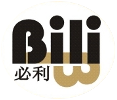How to Source Products from China – Outsourcing

How do you go about finding a reliable supplier in China? How do you source a product from China? How do you find a qualified manufacturer? Do you have a sourcing checklist? Do you need to check out the company you’re interested in doing business with? Do you need to visit the supplier? What information does the supplier need to provide for a quotation? What do you need to start business with a Chinese company? Do you need a translator?
Herein, Bili International will provide you with tips, experience, and the best places to go to find reliable suppliers.
There are literally millions of factories, suppliers, agents, trading companies and individuals that will tell you anything you want to hear to try to get your business. Finding a suitable partner is not as easy as you think. China is a very different culture. Business here is different than in the west and if you don’t understand this fact then you might end up being one of the many horror stories we often read about.
Here is an example of the wrong way to outsource:
Mark was building beautiful wood clocks but found that the rough work was very labor-intensive so outsourcing this part to China made sense. He searched on Google and found several clock manufacturers. In fact, one area of Shandong province was well-known for clock manufacturing, stemming all the way back to the German occupation of this area. He chose one of the companies who had a functional website with detailed pictures of the factory and even pictures of clocks very similar to what he wanted built.
It all looked promising and so he emailed the company with his request. The company seemed to respond well and entirely in English. Mark sent a sample to the factory and the factory provided a quote. Everything looked good so Mark decided to wire a deposit and start the first production run. The money was wired to the company on March 7th with the agreement that the product would be delivered 20 days later. Twenty days later, on March 28th, Mark contacted the company but didn’t get a response. He tried again several times at the beginning of April with still no response. On April 12th, Mark tracked down my company and asked if I could check to see if the company in question was legitimate or not.
We discovered that the trading company Mark had wired the money to didn’t have any clue about the situation. Furthermore, nobody had recently checked the order’s status. It seemed like they had forgotten about it. We tracked down the actual factory and learned that they did in fact receive the sample Mark had sent and intended to build a sample for Mark but hadn’t gotten around to it yet. We followed up by taking pictures of the quality of wood they were going to use, got some details of when the order would be completed, and sent them to Mark.
When Mark saw the pictures he quickly realized that they were going to use a different quality of wood. He inquired about the wood and confirmed that the plan was to build his samples out of an inferior material. Obviously, he rejected that plan and insisted that they build the sample as to the initial agreed-upon order. The factory then replied with the words we most commonly hear in China when we encounter such a problem: “mei shi,” (meaning “it doesn’t matter”) and “cha bu duo” (meaning “it’s close enough”). Mark replied, “If you can’t use the specified quality of wood then give me my money back.”
The factory then said that he would have to deal with the trading company he wired the money to. We contacted them but only got the run around stories and evasion tactics until we finally had to say, “Just return the money!” They said OK and agreed to wire it back within ten days. Ten days went by and of course, no money! The company said, “next week,” but still no money and then they stopped replying to Mark’s emails altogether. Mark called us again and asked us to go to the police for him, which we did. The police weren’t of any help and tried to defer the case to the courts. I did manage to get them to call the company who again promised to wire the money the next day. The next day came and went. And yes, you guessed it - no money! There is much more to the story, but to make a very long story short, four months went by and still no money returned. Mark’s only option now was to go to court, in China of course, so he ended up writing it off as a bad debt.
The moral of the story is that this company didn’t intentionally set out to scam Mark, at least not in the beginning. They were just extremely disorganized with poor administrators and project managers. The lack of clarity and expectations on both sides made the situation become too much of a hassle. The outcome was the inevitable run around and lies until Mark just gave up. Fortunately, for Mark, the dollar value was quite low.
In Mark’s case, there were several things wrong with his method of outsourcing, and here are just a few of them:
- There was no direct contact with the manufacturer or knowledge about them.
- There was no contract that answered the ‘who’, ‘where’, ‘when’, ‘how’, ‘what’, and ‘why’ questions before wiring money.
- There was no system in place for accountability.
- There was no system in place for tracking.
Here is a checklist of things to consider when outsourcing a product from China:
Change your attitude
The business culture in China is very different than in the west and even though you think that the customer, “you”, is king, you will need to adopt a more humble attitude. If you have ever been to China or a third-world country and have seen how they haggle in the markets, you would begin to understand their business practices. The adage, “seek first to understand before being understood” will build much better rapport than thinking that you are the king. You will have to change your way of doing things until you have built a relationship. Then, you can start changing things to your way of doing.Clarify your expectations
This is one of the biggest problems in finding a good supplier. We often think that because they’ve heard our words or because they know English that they understand. Don’t expect comprehension even if they say “Yes, I understand.” It is part of Chinese culture to always say “yes”. To say “We can’t do it” or “We don’t know” is like loosing face.You shouldn’t expect that they fully understand your product nor your expectations of service or quality until they have proven it as fact through a couple of orders or more. At Bili, we have created a document that explains our company’s business procedures and expectations. This establishes our expectations for communication, accountability, quality and delivery and how we expect problems solved when they occur. It sets the right business tone from the beginning.
Make a simple clear project information sheet
We recommend that you make a simple product information sheet. Describe your product in detail, and provide the specifications and a couple of pictures. This will save time in emailing back and forth and help you to be clear on exactly what you want. After you have described your product, you can choose a few keywords that best describe your product for your searches.Start outsourcing
A good place to start is the major portals like www.made-in-china.com and www.global-sources.com. We prefer www.Alibaba.com because it is one of the biggest and best-organized systems for sourcing in China. We also talk with our current suppliers and if they can recommend anyone. We use Google, Baidu and some local B2B sites to try to find that rare individual or company that is forward thinking and may be organized and dedicated to building decent product.Learn a little about the portal before using it. Most of these portals have help files that explain how to use their services. Alibaba, for example, has a section on “Finding the right supplier”. Browse through that to get knowledge about their system.
The gold suppliers on Alibaba are usually fairly large companies because they will have paid a significant amount of money to become a gold member. Register an account and begin searching with your key words. When you find a suitable supplier, make initial contact and then send them your product information sheet, asking them if they can make your product, if so go through the next steps.
Verify the supplier
You really need to verify the company is real and not some fake about to scam you. These fakes are good and even some Alibaba Gold suppliers can be fake. Several times a month people contact Bili asking to verify a company because they are about to wire money and have a funny feeling about them. Several times a month I save clients thousands of dollars by identifying a bogus company. Read the articles on “Verifying a Chinese Company” and “How to Identify a Fake Company”.Qualify the supplier
You will need to qualify the supplier to be sure they are truly capable of making the product you want. You should do a factory audit and always visit the facility to meet the management, and inspect the machines and equipment that will be used to make the product. If you are not able to visit the factory then you should consider getting a professional firm to do this for you. Visit our Audit and Inspections page for an idea on the cost of these services.Get a quotation
Get at least three quotations. If you find the number are within 10% then there is a good chance you will have a good idea of what the costs will be. If there is a large spread, some very low, some very high then you have a potential problem. Costs in China are similar across the board.Be sure you get a quote that includes all the parts related to your product. I suggest you have a quote form that breaks down all the parts and pieces in a Bill of Materials (BOM). Be sure the quote includes packaging and shipping FOB to the local port. FOB means “free on board” so this price should include all the inland trucking and all the taxes and port charges in China.
Placing an order
If you are satisfied with the pricing and want to place an order, then prepare a manufacturing contract. (See Manufacturing Contract for China (Template) for an example.) A purchase order does not have enough information to protect you if there is a problem. Be sure to have a detailed manufacturing agreement or contract that specifies all the details of the deal. It should cover all the information for both parties involved, product and pricing details, shipping details, warranty details and who is responsible for what.Make a tracking and checking system
The Chinese are great at just not doing things. If there is no accountability then often your product gets put on the back shelf as they serve customers that are in there pushing them. When you order from a company you will need a tracking and inspections system from receiving of raw material through to production, final inspection and delivery. As you have seen from Mark’s story above, when there is no tracking or follow-up through the different stages of production. You risk not having things delivered on time or not delivered at all and sometimes even companies that plan to do the work you end up giving up and or just quitting and you will never get your money back. You really should be doing onsite checks at the various stages keeping an eye on things and accountability for completion.Follow up on a regular basis
Follow up on a regular basis especially when it comes close to the delivery date. This is the manufacturing industry, so expect delays. There are numerous things that can go wrong that affect the delivery of your product, so constantly follow up and don’t leave anything to chance.Problems and legal services
If you are experiencing problems, need some legal advice and or a local lawyer to help you write a proper contact, then I recommend you contact the following lawyer. Scott Hao speaks English excellently and has lots of experience in manufacturing.YouHua Law Firm, Qingdao Branch
山东友华律师事务所
Scott Hao
电话 / Tel: +86 532-8197-8031
传真 / Fax: +86 532-8197-6819
手机 / Cell: +86 15866820170
邮箱 / Email: scott@youhualaw.com
网址 / Web: www.youhualaw.com
地址 / Add: 青岛市海门路69号瑞纳康都西单元2层
“Chinese, English, French, German and many more languages”
Conclusion
Bili International has been instrumental in helping companies understand the investment climate, find the right suppliers, source specific products, and establish key relationships in China. If you require a western partner that can help you establish a supply chain and manage all the necessary aspects of your China outsourcing strategy, then Bili can help. Please review our page on “Quality Control and Project Management Services” or Contact Us for more details about how we can serve you.
Sincerely,
General Manager
Bili International
Related articles from Bili International:
Product Development: From concept to design to prototyping to production in ChinaBili International explains the basics of product development in China and how to go from concept to prototype to production.
Project management in China: The ups and downs of managing a project in ChinaBili International shares their experience on the challenges of managing a project in China. The “Do’s and Don’ts” and some insight you need to know to manage your projects successfully.
Quality in China: What is and How to get Consistent Quality in a Developing ChinaUnderstanding quality in China: What to look for and how to manage a quality system in this developing country China.
How to Check Out a Chinese CompanyBili International shows you how to check a company’s status with the government of China to ensure that it is properly registered and in good standing with the official industry and commerce bureau.
How to identify a fake Chinese company: Preventing you from being scammed in ChinaDon’t be fooled by a fancy commercial website that offers very low prices. Many people are being scammed by bogus companies so read this article to help prevent this from happening to you.
Wholly Owned Foreign Enterprise (WOFE): How to set up a factory in ChinaBili International explains the general rules, steps, and common pitfalls in setting up a foreign owned company in China, generally known as a “Wholly Owned Foreign Enterprise” or WOFE.
If you need further assistance please don’t hesitate to Contact Us for more details, pricing or how we can specifically help you.

